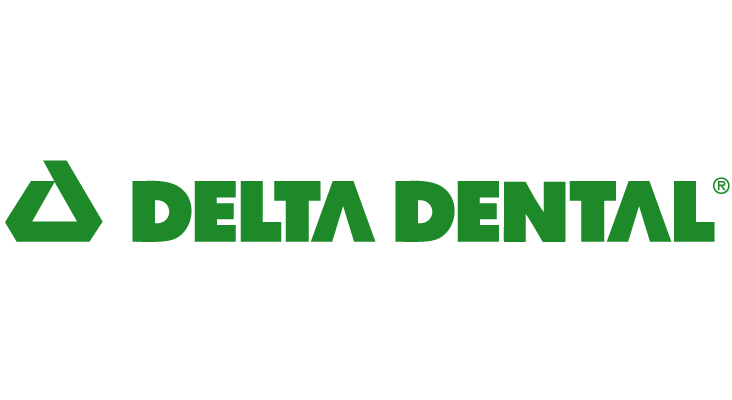Dental benefits explained
We know dental insurance can be tricky to navigate. This guide will help you better understand how dental plans work so you can get the most from your coverage.
Why do I need a dental plan?
Oral health is closely linked to your overall health. Dental disease can contribute to cardiovascular disease, respiratory illness, diabetes, and other health issues. With regular exams and cleanings, your dentist can help identify warning signs and symptoms of these diseases, before they become larger problems.
Most benefit programs, including Delta Dental Individual and Family Plans, emphasize preventive care. It often costs less to prevent dental disease than to perform major restorative work later. Typically, individuals with a dental plan are more likely to visit their dentists, resulting in better oral health and lower treatment costs down the road.
Our policies work very similar to a medical insurance plan. When you purchase an individual dental plan you pay a specific monthly premium, and are therefore entitled to certain benefits, including regular checkups, cleanings, X-rays, and certain services required to promote general dental health. Some plans will provide broader coverage and others will require a greater financial contribution on your part when services are rendered. Plans may or may not provide coverage for certain types of oral surgery, dental implants, or dentures.
How do I find the best plan for me?
The Get a Quote tool is a great starting point to compare policies side by side. To answer more in-depth questions about your dental needs and which policy will fit those needs, contact our licensed sales agent at 888-899-3736.
Where can I use my policy?
Nationwide! To get the most from your benefits, we encourage you to see a dentist who participates in your plan’s network. These are called “in-network” dentists. They provide services at discounted rates and file all claims paperwork for you. You get the best out-of-pocket savings when you see an in-network dentist.
We have two dental networks:
- Delta Dental PPO™
- Delta Dental Premier®
Providers in the PPO network offer the deepest discounts on covered services. Premier providers are considered in network but will have slightly higher fees for the same services.
If you choose a non-participating dentist, you’re responsible for making sure they complete your claim forms and send them to us.
To find a participating Delta Dental PPO or Delta Dental Premier provider, visit the Find a Provider tool.
What are copayments and coinsurance?
Some dental insurance plans have a copayment policy. That means you and your plan split the cost of your dental care at a predetermined level or percentage. What you pay to your dentist is called the copayment.
Copayments are paid even after your deductible is reached.
Coinsurance is the amount you’re responsible for paying toward the cost of dental treatment after we’ve paid our portion. For example, let’s say your plan covers restorative treatments like fillings at 80%. That means we’ll pay your dentist 80% of the cost of your treatment. You’re responsible for paying your dentist the remaining 20%.
When will my dental policy be effective?
Your policy will be effective on the first day of the month following enrollment, or the month after. Please note, your enrollment must be received before the 25th of the month if paying by EFT (Electronic Funds Transfer) or the last day of the month if paying by debit/credit card. Enrollments for individuals paying by EFT that are received on the 25th of the month or after will be effective the 1st of the month after the next month. (Example: Paying by EFT on September 26th will have a November 1st effective date.)
What is a waiting period?
Some dental plans have waiting periods for certain treatments. A waiting period is the length of time after your plan starts that you must wait before you can use your coverage for that treatment.
For example, let’s say your plan has a six-month waiting period for crowns. If your coverage started on January 1, your coverage for crowns would begin six months later on July 1.
The policy I want has waiting periods, am I eligible to waive them?
Depending on your state of residence, if you have had prior continuous coverage with no lapse, you may be eligible to waive the waiting periods on a new policy. When completing your application online, by paper, or enrolling with a sales agent, you will have a chance to provide your prior coverage dates. Contact our licensed sales team at 888-899-3736 to see if you qualify to waive the waiting periods on a new policy.
What is a benefit period?
A benefit period is the time frame in which you may use your plan to receive care. Your coverage begins on your plan’s effective date and ends on the last day of your benefit period. Most plans have a yearlong benefit period.
For example, let’s say your effective date is January 1, 2023. That’s the date you could begin using your coverage. Your benefit period is January 1 through December 31, 2023. This means your coverage is only good through December 31, 2023.
What is a deductible?
Most dental plans have a deductible. During your plan’s benefit period, you may have to pay a portion of your dental bill before your plan pays towards your bill. Many dental benefit plans waive deductibles for preventive and diagnostic services. Be sure to check your benefits to see if this applies to your coverage.
What is a maximum?
There are two types of maximums you may see on your plan. They are annual maximum and lifetime maximum.
If your policy has an annual maximum, that is the maximum dollar amount your plan will pay towards the cost of dental care within a benefit period. For many plans, preventive and diagnostic services are exempt from annual maximum accumulation. This means the plan pays these benefits in addition to the annual dollar maximum.

